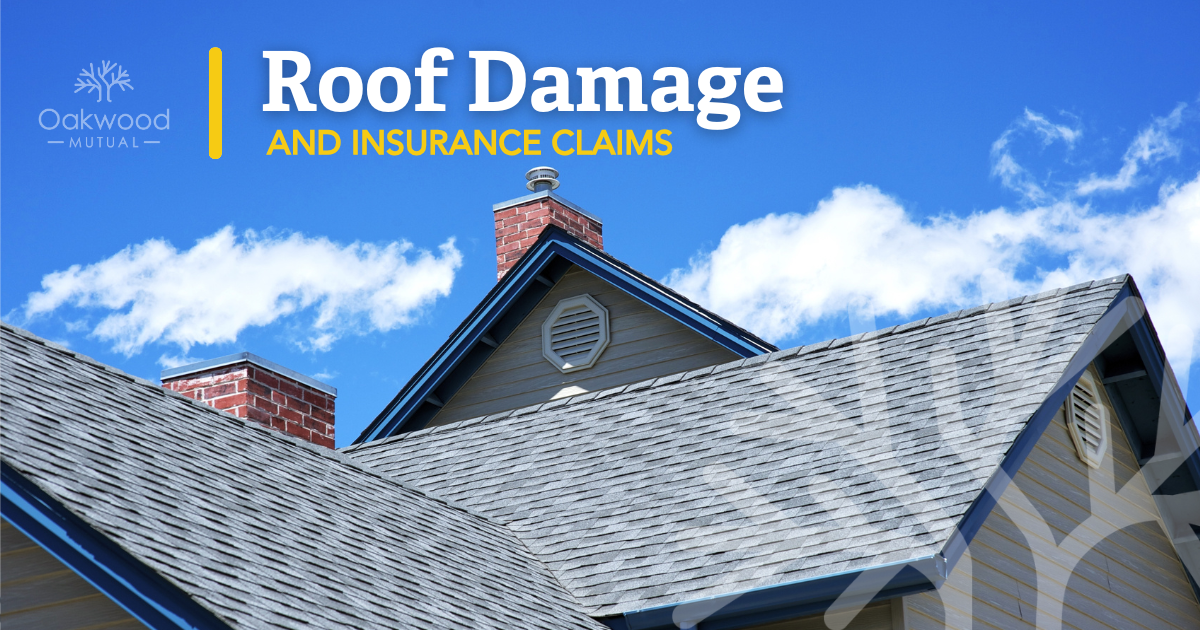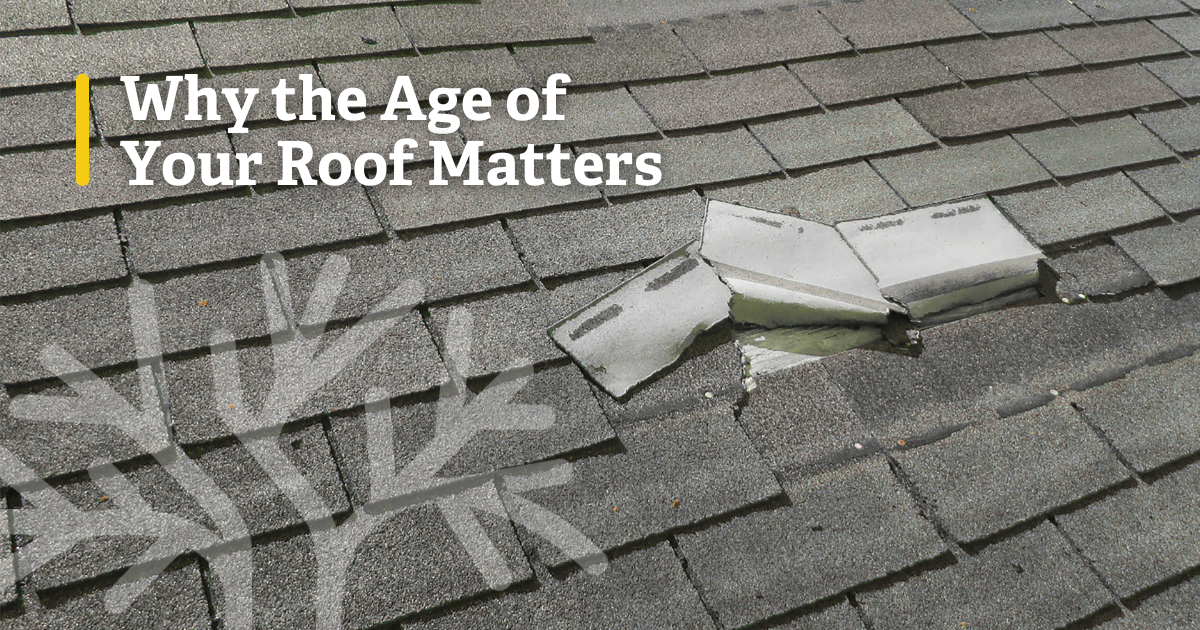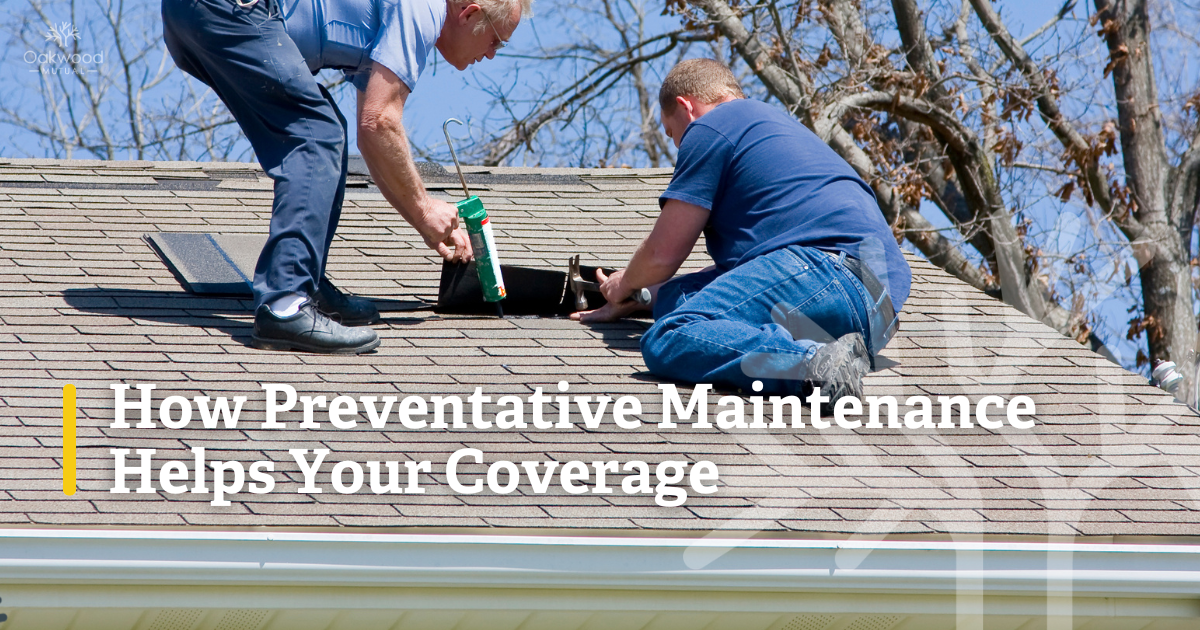
Roof Damage and Insurance Claims
Your roof is your home’s first line of defense, especially in Indiana where wind, hail, and seasonal storms are all too familiar. But when damage happens, many homeowners are caught off guard by what their insurance will or won’t cover.
Understanding the difference between sudden storm damage and long-term wear and tear can help you avoid surprise claim denials and make better decisions about your roof’s care and coverage.
What’s Covered vs. What’s Not
When it comes to homeowners insurance, not all roof damage is treated the same.
Most standard policies will cover sudden and accidental damage caused by events like:
- Windstorms
- Hail
- Lightning
- Falling objects (like trees or branches)
- Fire
For example, if your roof shingles are blown off during a strong thunderstorm or a tree limb crashes through your roof during a spring storm, that’s typically covered. Indiana homeowners are no strangers to severe weather, which is why keeping an eye on seasonal threats is so important. Our Spring Storms blog dives deeper into how to prepare and protect your home.
What is not covered is gradual damage due to:
- Aging or deteriorated shingles
- Improper installation
- Neglect or lack of maintenance
- Long-term leaks
- Mold or rot from undetected water issues
Insurance companies see these types of damage as preventable or maintenance-related. If your roof has been showing signs of wear for years and finally starts leaking, you may be on your own to pay for repairs.

Why the Age of Your Roof Matters
Many insurance policies take roof age into consideration when determining whether to cover a claim and how much to pay out if they do. Older roofs, typically 20 years or more, are at higher risk for failure, especially in storms.
Some policies may offer limited coverage or actual cash value (ACV) for roofs over a certain age. This means instead of receiving the full cost to replace your roof, you’d only be reimbursed for the depreciated value based on age and condition.
If you’re not sure what your policy says about your roof, this is a good time to schedule a personal insurance review. Oakwood agents are trained to walk you through your policy details and flag any areas that may need updates.

How Preventative Maintenance Helps Your Coverage
Even a well-installed roof will not last forever, but regular maintenance can extend its life and help keep your coverage intact.
Simple things you can do:
- Inspect your roof each spring and fall for missing or cracked shingles
- Clean out gutters and downspouts to prevent ice dams and water backup
- Trim back overhanging tree branches that can scrape or damage shingles
- Address small leaks or flashing issues right away
Proactive steps like these not only help prevent costly damage, but they also show your insurer that you’re maintaining your home properly. If you’ve taken steps to prevent damage and something still goes wrong, you’re in a better position when filing a claim.
Need help assessing risk around your home? Our Home Protection Tips blog outlines key maintenance areas that can help protect both your property and your policy.
Roof Claims and Deductibles
Keep in mind that even when a roof claim is approved, your deductible applies. For example, if you have a $1,500 deductible and your roof repair estimate is $2,000, you’ll only receive $500 from your insurer. Sometimes, paying out of pocket for smaller repairs makes more financial sense.
You can read more about this type of claim decision-making in our blog on When to File a Claim. Knowing when to file and when not to can help protect your premium and avoid complications with your coverage.
How to Be Prepared Before Storm Season
Roof claims often spike after severe weather hits. If you’ve made upgrades to your roof or materials recently, let your agent know so they can update your policy. Conversely, if your roof is showing signs of age, it may be worth discussing a roof replacement schedule.
Also, if you have trees near your home, remember that Oakwood Mutual’s policies typically allow up to $500 per tree for cleanup in the event of damage. You can also read more about that in our recent blog on Tree Damage and Home Insurance.

Talk to Your Oakwood Agent
Whether you live in a small town or a rural area of Indiana, working with a local Oakwood Mutual agent gives you access to personalized insights and guidance. Our agents live in the same communities as you and understand the unique risks homeowners face here.
A local agent can:
- Help you determine if your current roof is properly covered
- Explain how your deductible would apply to different roof scenarios
- Guide you through a maintenance checklist to stay ahead of costly problems
If it’s been a while since you reviewed your policy or if you’re not sure what’s covered, use our Find an Agent tool to connect with an Oakwood Agent near you.
A strong roof over your head is about more than just shelter. It’s a key part of your insurance protection. Don’t wait for damage to happen before checking your coverage. Take time now to inspect your roof, complete any needed maintenance, and connect with your Oakwood agent. When storms roll through, you’ll be glad you did.


